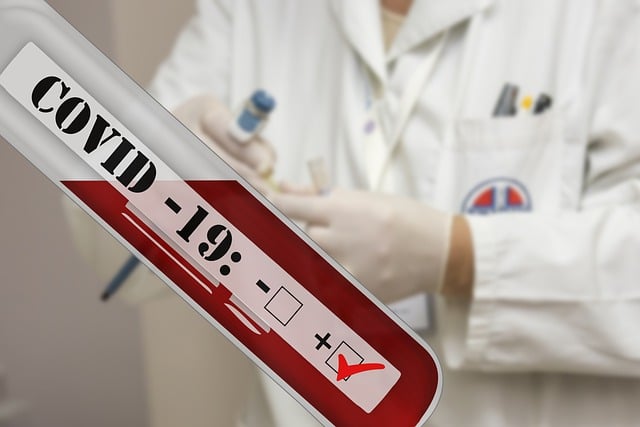In the UK, where testosterone blood tests are common, vitamin B12 deficiency is a serious condition. Subtle symptoms include fatigue and memory issues, while severe cases may cause neurological problems. Early detection through regular blood tests is vital for timely intervention, especially in high-risk groups like the elderly or vegetarians/vegans. A UK Testosterone Blood Test reveals critical Vitamin B12 levels, guiding healthcare providers to interpret results based on age and health conditions. Treatment options include dietary changes, supplementation, injections, or oral medications, with regular follow-up tests ensuring deficiency resolution.
In the UK, vitamin B12 deficiency is a growing concern, affecting individuals across all demographics. This article guides you through the process of detecting this silent health issue using blood tests, a crucial tool in diagnosing and managing B12 deficiency. We explore common symptoms, risk factors, and the interpretation of test results to empower you with knowledge. Understanding when to take a UK testosterone blood test can be life-altering, ensuring early intervention for better health outcomes.
- Understanding Vitamin B12 Deficiency: Symptoms and Risk Factors
- The Role of Blood Tests in Diagnosing Deficiency
- Interpreting Results and Next Steps After a UK Vitamin B12 Blood Test
Understanding Vitamin B12 Deficiency: Symptoms and Risk Factors
Vitamin B12 deficiency is a condition that occurs when your body doesn’t have enough of this essential vitamin, which plays a crucial role in maintaining healthy nerves and blood cells. In the UK, where testosterone blood tests are also common, it’s important to be aware of the symptoms and risk factors associated with B12 deficiency. Some individuals may experience subtle signs, such as fatigue, weakness, and memory issues, while others can present with more severe symptoms like neurological problems (numbness or tingling in hands and feet), balance disturbances, and even depression.
Several factors can increase your risk of developing a vitamin B12 deficiency. Age is a significant contributor, as the ability to absorb B12 decreases with age. Additionally, certain medical conditions like pernicious anaemia, where the body doesn’t produce enough of a protein necessary for B12 absorption, are at-risk factors. Dietary habits also play a role; strict vegetarians or vegans may be deficient due to limited food sources, as B12 is primarily found in animal products. Regular blood tests, especially if you belong to high-risk groups, can help detect B12 deficiency early, enabling prompt intervention and treatment.
The Role of Blood Tests in Diagnosing Deficiency
In the detection of Vitamin B12 deficiency, blood tests play a pivotal role in providing accurate diagnoses. These tests are essential tools for healthcare professionals as they can uncover subtle imbalances that might not be evident through symptoms alone. By analysing a sample of your blood, these tests measure the levels of Vitamin B12 and its related markers, offering valuable insights into your nutritional status. In the UK, a simple blood test is often the first step in determining if an individual is suffering from a deficiency, which can have severe consequences for overall health, including neurological and haematological impacts.
A typical UK Testosterone Blood Test involves drawing a small sample of blood, usually from a vein in the arm, and sending it to a laboratory for analysis. The results can indicate whether there’s a lack of Vitamin B12, enabling timely intervention with appropriate treatments such as supplements or injections. Early detection through blood tests is crucial, as it allows for prompt addressing of the deficiency, thereby preventing potential long-term health issues.
Interpreting Results and Next Steps After a UK Vitamin B12 Blood Test
After undergoing a UK Vitamin B12 blood test, interpreting the results is crucial to understanding your health status. If the levels are below the reference range (typically 140-900 pg/ml), it indicates a deficiency. Your healthcare provider will consider various factors, including age, lifestyle, and underlying health conditions, to determine the cause of the low levels.
The next steps often involve addressing the deficiency through dietary changes, supplementation, or medical treatments. Dietary adjustments may include increasing intake of foods rich in Vitamin B12, such as meat, fish, dairy products, and fortified cereals. In some cases, injections or oral medications might be prescribed to quickly restore levels and prevent further complications. Regular follow-up tests are essential to monitor progress and ensure the deficiency is adequately addressed.
In light of the above discussions, it’s clear that vitamin B12 deficiency can significantly impact overall health. Understanding its symptoms and risk factors is crucial for early detection, especially in the UK where access to testing is readily available. A simple blood test can effectively diagnose this deficiency, allowing for timely intervention through dietary changes or supplementation. Remember that prompt action can prevent severe complications and improve quality of life.
